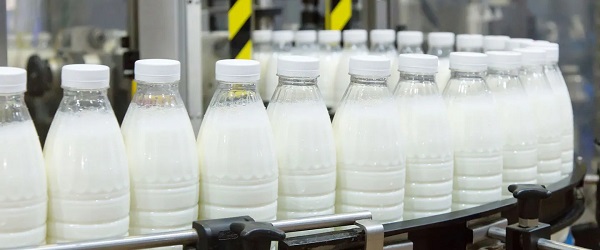Agriculture
Canola or cars? Canada can’t save both

This article supplied by Troy Media.
 By Doug Firby
By Doug Firby
Canada is risking its most successful export to prop up an EV pipe dream
Picture a Canadian industry that contributes $43 billion to the economy and employs about 200,000 people.
There aren’t many of those in this country. Any industry of that size should be considered indispensable.
And yet, while there is (understandable) national hand-wringing over the future of Canada’s auto industry—especially in light of U.S. President Donald
Trump’s renewed tariff rampage—another industry, arguably more economically important, is being dangerously overlooked.
That industry is canola.
A summer drive through Manitoba, Saskatchewan or Alberta makes the scale hard to miss. Yellow fields stretch to every horizon. Canola production has exploded over the past decade and has become the very lifeblood of the Prairies.
Without it, large parts of those provinces would be economically barren and far more sparsely populated. We’re not talking about niche agriculture here—we’re talking about a foundational industry that keeps the lights on across three provinces.
Canada is the world’s largest exporter of canola, a crop used to produce cooking oil, animal feed and biofuels. Its export-driven success makes it a cornerstone of the Prairie economy.
Now consider this: Canada’s auto manufacturing industry contributes about $19 billion annually to GDP and employs around 125,000 people directly in assembly and parts manufacturing. Include distribution and aftermarket services, and you get a bigger figure, but the core numbers still pale in comparison to canola.
So, here’s the uncomfortable question: If you had to sacrifice one, which would it be?
It’s a Hobson’s choice. Nobody wants to lose either. But Canada has been pushed into a position where something has to give.
The Trudeau government—and before that, the Biden administration—imposed 100 per cent tariffs on made-in-China electric vehicles (EVs). The logic was straightforward: protect the billions being pumped into Canada’s auto sector and turn the country into a hub for EV innovation and production.
It was a defensive move: one meant to slow China’s dominance in the global EV market and give domestic manufacturers room to grow. Without it, cheap, wellbuilt Chinese EVs would undercut Canadian and North American models before they ever left the factory floor.
But China doesn’t take these things lightly. In retaliation, it slapped a 76 per cent tariff on Canadian canola. Prairie farmers, many of whom are already grappling with rising costs and unpredictable weather, are now wondering if their main market is disappearing overnight.
China has long been Canada’s largest canola customer, though the relationship has had flare-ups, including temporary bans in past years tied to diplomatic disputes.
More than two-thirds of Canada’s exported canola goes to China. The latest tariff hike has already wiped out an estimated $1 billion in value. And there’s no clear end in sight.
Manitoba Premier Wab Kinew was blunt last week: Canada cannot afford to be in a trade war with both the United States and China. He suggested that, in the short term, Ottawa should direct EV tariff revenues to support canola producers. That may buy us some time. But the broader strategic question looms larger: With the U.S. under Trump becoming an increasingly unstable trade partner, and China punishing us for playing by American rules, where does Canada place its long-term bet?
It’s not an easy question to answer.
China is hardly an ideal partner. Its human rights record is abysmal, and its growing economic power often comes with strings attached. But we also can’t deny that it has already become the global manufacturing centre in many key sectors—including electric vehicles.
Then there’s the U.S. A longtime ally, yes, but under Trump, all bets are off. In January, he said of Canada, “We don’t need anything they have.” Not cars. Not oil. Not even niceties.
CUSMA—the Canada–United States–Mexico Agreement that replaced NAFTA—governs most of Canada’s trade with our two largest partners. If Trump reopens the deal—and with Trump, it’s usually safest to take him literally—the Canadian auto industry may not survive. Billions in subsidies and protective tariffs won’t matter if the largest market slams its door shut.
So, again: what should we protect?
New markets for canola are being pursued—in Europe, Japan and elsewhere. But they won’t match China’s scale anytime soon. Diversifying export markets takes years. Prairie farmers don’t have that kind of time.
Meanwhile, dreams of building a Canadian-made EV remain just that: dreams. The auto sector may eventually pivot and survive, but right now, it’s the one on life support. Canola is the industry that’s vibrant—unless we let it get crushed in a trade crossfire.
I lived in an auto town for over two decades. I know the stakes. I’ve seen what happens when plants close, when supply chains dry up, and when livelihoods vanish.
But we need to be realistic.
Canola is a winning industry. It feeds the economy, supports thousands of families and helps keep our rural communities alive. It doesn’t need endless
subsidies or federal cheerleading—it just needs stable access to markets.
That might mean giving ground on EV tariffs. That might mean swallowing some pride on the international stage. But Canada cannot afford to sacrifice a thriving sector to save one already on the brink.
If we’re going to make hard choices—and we will—let’s make the one that protects what still works.
Canada cannot lose canola.
Doug Firby is an award-winning editorial writer with over four decades of experience working for newspapers, magazines and online publications in Ontario and western Canada. Previously, he served as Editorial Page Editor at the Calgary Herald.
Troy Media empowers Canadian community news outlets by providing independent, insightful analysis and commentary. Our mission is to support local media in helping Canadians stay informed and engaged by delivering reliable content that strengthens community connections and deepens understanding across the country
Agriculture
Lab-made food won’t win over Canadian shoppers

This article supplied by Troy Media.
Would you eat ice cream made from recycled plastic?
Producing butter without cows, pastures or crops—using only carbon and hydrogen synthesized in a laboratory—sounds like science fiction. Yet in an era of climate urgency and resource constraints, it is being framed as the next frontier in food innovation. A new wave of philanthropists and investors is betting on disruptive technologies to reimagine how we eat.
One such player is Savor, a Chicago-based company partly backed by Bill Gates, who has become a prominent supporter of climate-focused food startups. The firm says it has created a product indistinguishable from traditional butter.
Unlike margarine, made from plant oils such as soybean or canola, this butter contains no animals or crops. Its fat molecules are built in a lab from carbon dioxide captured from the air and hydrogen drawn from water, processed through heating and oxidation. The result mimics the molecular structure of fats found in beef, cheese or vegetable oils, without a single acre of farmland.
Savor claims its butter would have a far smaller environmental footprint than traditional dairy. Commercially, the company is targeting a market launch within 12 to 18 months, likely at a premium comparable to organic butter. On nutrition, however, the company has said little. That leaves a larger question for consumers: will lab-made foods ease the strain of record grocery bills or simply add another pricey product?
Molecular agriculture, sometimes called synthetic or cellular food production, means building foods molecule by molecule in a lab instead of growing them on farms. It has gained traction across categories from meat to seafood to coffee. These products are marketed as climate saviours, but what really drives consumer choices, labelling, price, taste and nutrition, often comes second.
Sometimes the race for novelty veers into the absurd. In 2023, a UK company claimed it could make ice cream from recycled plastic. One has to wonder how far we are prepared to go in the name of saving the planet. And novelty isn’t the only risk: history shows that even once-celebrated food science can backfire.
Trans fats, for example, were once hailed for improving texture and shelf life, only to be banned after their damage to public health became undeniable.
This points to a deeper cultural and economic tension. Food is not simply about producing calories with minimal resources. It is also an expression of culture, heritage and pride, rooted in centuries-old traditions. According to the Food Sentiment Index published by the Agri-Food Analytics Lab at Dalhousie University earlier this year, just nine per cent of consumers cite the environment as their main purchase driver.
Cellular and molecular agriculture has its place, but it must be guided by the right motivations. Efforts that play God or lean on eco-authoritarian narratives risk alienating the very consumers they hope to attract. Credible pathways must integrate the cultural, economic and sensory dimensions of eating. In Canada, this connection is especially strong in dairy and agriculture, which remain both economic pillars and cultural touchstones.
The future of food will not be defined by lab breakthroughs alone. Success will hinge on taste, transparency, affordability and respect for tradition.
In the end, not all of us aspire to eat like Greta Thunberg.
Dr. Sylvain Charlebois is a Canadian professor and researcher in food distribution and policy. He is senior director of the Agri-Food Analytics Lab at Dalhousie University and co-host of The Food Professor Podcast. He is frequently cited in the media for his insights on food prices, agricultural trends, and the global food supply chain.
Troy Media empowers Canadian community news outlets by providing independent, insightful analysis and commentary. Our mission is to support local media in helping Canadians stay informed and engaged by delivering reliable content that strengthens community connections and deepens understanding across the country.
Agriculture
Canada should eliminate its supply management system—with or without Trump

From the Fraser Institute
By Alex Whalen and Jake Fuss
Post-deregulation Australia’s dairy industry increased exports by $3 billion. Exports now account for more than 30 per cent of Australia’s total dairy production (and 20 per cent in New Zealand, which also ended its supply management system) compared to less than one per cent in Canada.
In one of the latest salvos in his trade war, President Trump recently took aim at supply management in Canada—a set of regulations that restricts supply and controls imports to allow Canadian dairy producers of milk, eggs and poultry to maintain higher prices for their products than would otherwise exist in a competitive market.
In his attacks on Canada, Trump gets a lot wrong. But in fact, if Ottawa and the provinces dismantled our supply management system in a fair and productive way, it would be a rare win-win in trade negotiations with the Trump administration. And a win-win for both Canadian consumers and Canadian farmers.
For lessons in reform, Canada can look to other countries. For example, Australia’s dairy industry was heavily regulated for most of the 20th century, but by the 1990s, the weight of higher prices for supply-managed goods created public pressure for reform. The country also faced pressure from its trading partners to stop shielding its domestic dairy industry on grounds of fairness, much like the U.S. pressure Canada faces today.
So, around the turn of the century, the Australian government gradually dismantled its supply management system. Immediately following deregulation, milk prices fell by 12 cents per litre in Australia. Since then, prices have remained relatively flat, with price increases below the rate of inflation.
In other words, when the Australian dairy industry transitioned from a tightly-regulated protected industry to a more open industry with competition from both domestic and international firms, consumers reaped the rewards.
Of course, opponents of reform in Canada (including the dairy lobby) claim that supply management is necessary to help Canadian farmers survive and thrive. But in fact, after the Australian government eliminated supply management, the farming industry was arguably stronger. Some farmers exited the industry (and were compensated for doing so), and those that remained were more productive and more competitive in export markets.
In fact, post-deregulation Australia’s dairy industry increased exports by $3 billion. Exports now account for more than 30 per cent of Australia’s total dairy production (and 20 per cent in New Zealand, which also ended its supply management system) compared to less than one per cent in Canada. Despite Canada’s larger economy and population, both Australia and New Zealand export more dairy products than Canada.
At the same time, the Australian government introduced programs to financially support farmers to either help them adjust their operations or exit the industry. Farmers who remained in the industry experienced a 56 per cent increase in revenues and a substantial increase in the value of exports.
Moreover, according to a study from 2011, government subsidies for farmers equalled six per cent of total farm receipts in Australia and one per cent in New Zealand compared to 18 per cent in Canada. Which means that, due largely to Canada’s supply management system, the burden on taxpayers in Canada is far heavier than in those two countries.
Here in Canada, reform requires cooperation between the federal and provincial governments. Currently, Ottawa controls the trade component of supply management through restrictive import tariffs, while the provinces work alongside the federal government to regulate milk marketing boards, which set minimum prices for consumers.
In the face of President Trump’s aggressive trade actions, the premiers should agree to work with the Carney government to finally eliminate Canada’s arcane supply management system. It won’t be easy—politicians are slow to challenge entrenched interests and constituencies. But as the experience of our other allies clearly shows, governments can reform the dairy industry to the benefit of both consumers and farmers. There could be a silver lining to Trump’s attack on supply management in Canada.
-

 International2 days ago
International2 days agoTrump holds high-stakes peace talks with Zelenskyy, European leaders
-

 Artificial Intelligence2 days ago
Artificial Intelligence2 days agoMeta joins forces with conservative activist Robby Starbuck to keep woke bias out of AI
-

 Agriculture1 day ago
Agriculture1 day agoCanada should eliminate its supply management system—with or without Trump
-

 Alberta1 day ago
Alberta1 day ago“Back in the saddle” Poilievre’s words after winning the Battle River-Crowfoot byelection
-

 Opinion1 day ago
Opinion1 day agoWhen collective and individual rights clash, media must focus on holding the powerful accountable
-

 Energy1 day ago
Energy1 day agoOil prices sliding as the market anticipates peace in Ukraine
-

 Agriculture1 day ago
Agriculture1 day agoLab-made food won’t win over Canadian shoppers
-

 International2 days ago
International2 days agoPutin, Zelenskyy to meet after ‘successful’ peace talks with Trump








